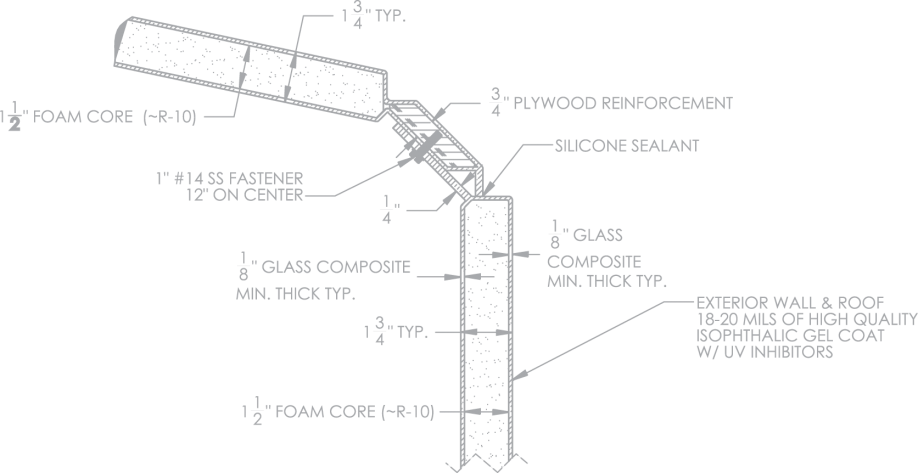Cutting-edge Composites in Modern Building Projects
Cutting-edge Composites in Modern Building Projects
Blog Article
Exploring the Uses and Advantages of Recycled Composites in Modern Industries
In today's quickly evolving industrial landscape, the usage of recycled composites has gathered increasing interest for its possible to redefine typical production techniques. The combinations of recycled products with sophisticated composite modern technologies presents an appealing avenue for boosting sustainability, strength, and cost-efficiency throughout various fields. As sectors seek innovative services to attend to environmental concerns and boost functional performances, the incorporation of recycled compounds becomes an engaging choice. This shift towards sustainable methods not just lines up with worldwide preservation efforts yet likewise provides a myriad of advantages that hold the trick to forming the future of contemporary production techniques.
Environmental Advantages of Recycled Composites
The utilization of recycled compounds in modern-day sectors offers considerable environmental benefits, contributing to the decrease of waste and the conservation of all-natural sources. By including recycled compounds into producing processes, industries can reduce their dependence on virgin products, therefore decreasing the amount of waste generated and the power needed for extraction and production. This shift in the direction of making use of recycled compounds helps in drawing away materials from landfills, minimizing the worry on waste administration systems, and reducing greenhouse gas discharges related to conventional manufacturing practices.
In addition, the use of recycled composites promotes the conservation of natural deposits such as hardwood, minerals, and water, which are commonly depleted through the removal and handling of raw materials (composites). By extending the life-span of products via recycling, industries can help maintain communities and biodiversity by reducing the need for new resources. Generally, the fostering of recycled composites in modern sectors plays an important role in promoting sustainability and minimizing the environmental effect of production processes
Boosted Sturdiness in Item Manufacturing
With a concentrate on long life and robustness, incorporating recycled compounds into product manufacturing procedures enhances longevity and sustainability. By utilizing recycled composites, makers can produce products that are not just strong yet additionally resistant to tear and put on, making them ideal for long-lasting use in numerous industries. The mix of various materials in recycled composites can typically cause improved stamina and durability compared to standard products, supplying an economical service for producing durable items.
One of the vital advantages of making use of recycled composites in item production is the ability to customize the material properties to satisfy certain durability needs. By adjusting the structure and manufacturing strategies, producers can tailor the recycled compounds to stand up to rough ecological conditions, heavy tons, or frequent usage without endangering on efficiency. This flexibility in design and manufacturing allows for the creation of extremely long lasting items that maintain their integrity over time, decreasing the demand for constant replacements and ultimately contributing to an extra sustainable manufacturing procedure.
Cost-Effectiveness and Financial Advantages
Including recycled compounds right into product production not only boosts longevity and sustainability yet additionally provides significant cost-effectiveness and financial benefits. Utilizing recycled composites can lead to reduced product prices as recycled products are typically less expensive than virgin products. In addition, reusing composite materials can decrease garbage disposal expenditures and lower the need for landfill room, adding to general cost financial savings for sectors.

Technology and Style Versatility With Recycled Composites
Using recycled compounds in modern-day sectors offers exceptional opportunities for advancement and style flexibility. By integrating recycled materials into composite index manufacturing processes, companies can press the boundaries of standard layout constraints and explore new possibilities. The versatility of recycled composites permits for the creation of intricate shapes and frameworks that might not be achievable with traditional materials.
Among the key benefits of recycled composites is their capability to be formed into different forms, providing designers the liberty to explore special shapes and dimensions. composites. This adaptability opens up a world of innovative possibilities, enabling the development of light-weight yet resilient items that fulfill the particular requirements of different industries
Moreover, making use of recycled compounds promotes lasting techniques and supports the round economy by lowering waste and lessening the environmental effect of making processes. This concentrate on environmentally friendly layout remedies aligns with the expanding pattern towards sustainability in modern sectors, making recycled compounds a useful resource for innovative and forward-thinking firms.
Applications Across Various Industries
Recycled composites wikipedia reference find impactful and varied applications across a large range of sectors due to their one-of-a-kind properties and sustainability benefits. The aerospace industry advantages from recycled compounds in the production of aircraft parts, where the materials' strength-to-weight ratio is critical for guaranteeing safety and efficiency. The flexibility and sustainability of recycled compounds make them beneficial across various industries, driving innovation and environmental stewardship.
Verdict
In conclusion, the use of recycled composites in modern sectors uses substantial ecological advantages, boosted longevity in item manufacturing, cost-effectiveness, and economic benefits. Moreover, using recycled compounds enables technology and layout versatility across different markets. Generally, the adoption of recycled compounds provides a useful and sustainable solution for satisfying the needs of the wikipedia reference sector while also minimizing ecological impact.

One of the essential benefits of making use of recycled composites in product production is the capacity to tailor the product residential or commercial properties to fulfill specific sturdiness demands. Making use of recycled compounds can lead to decreased material prices as recycled materials are typically less expensive than virgin materials. The aerospace industry advantages from recycled composites in the production of airplane parts, where the materials' strength-to-weight ratio is vital for ensuring safety and efficiency.
Report this page